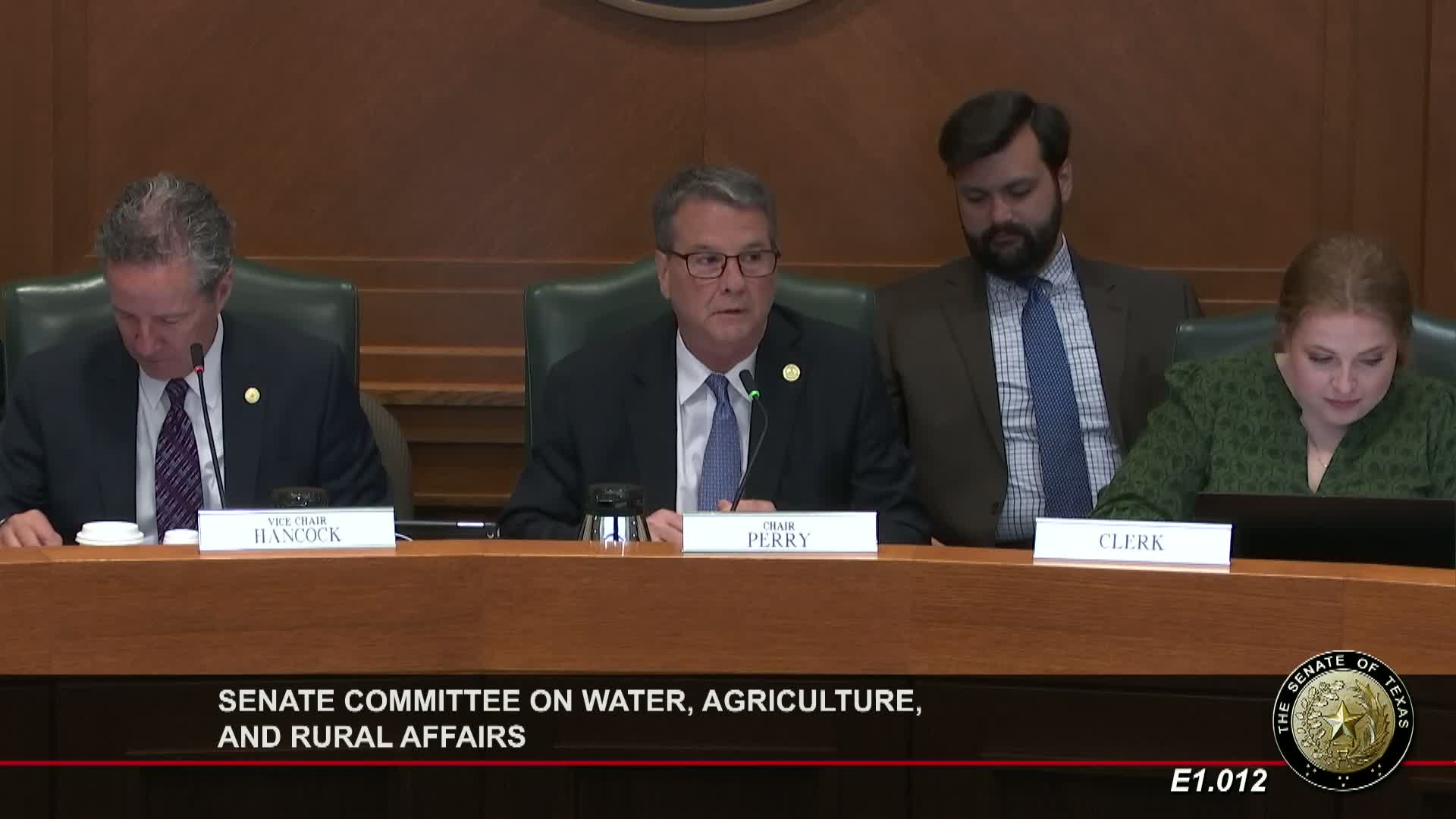Article not found
This article is no longer available. But don't worry—we've gathered other articles that discuss the same topic.
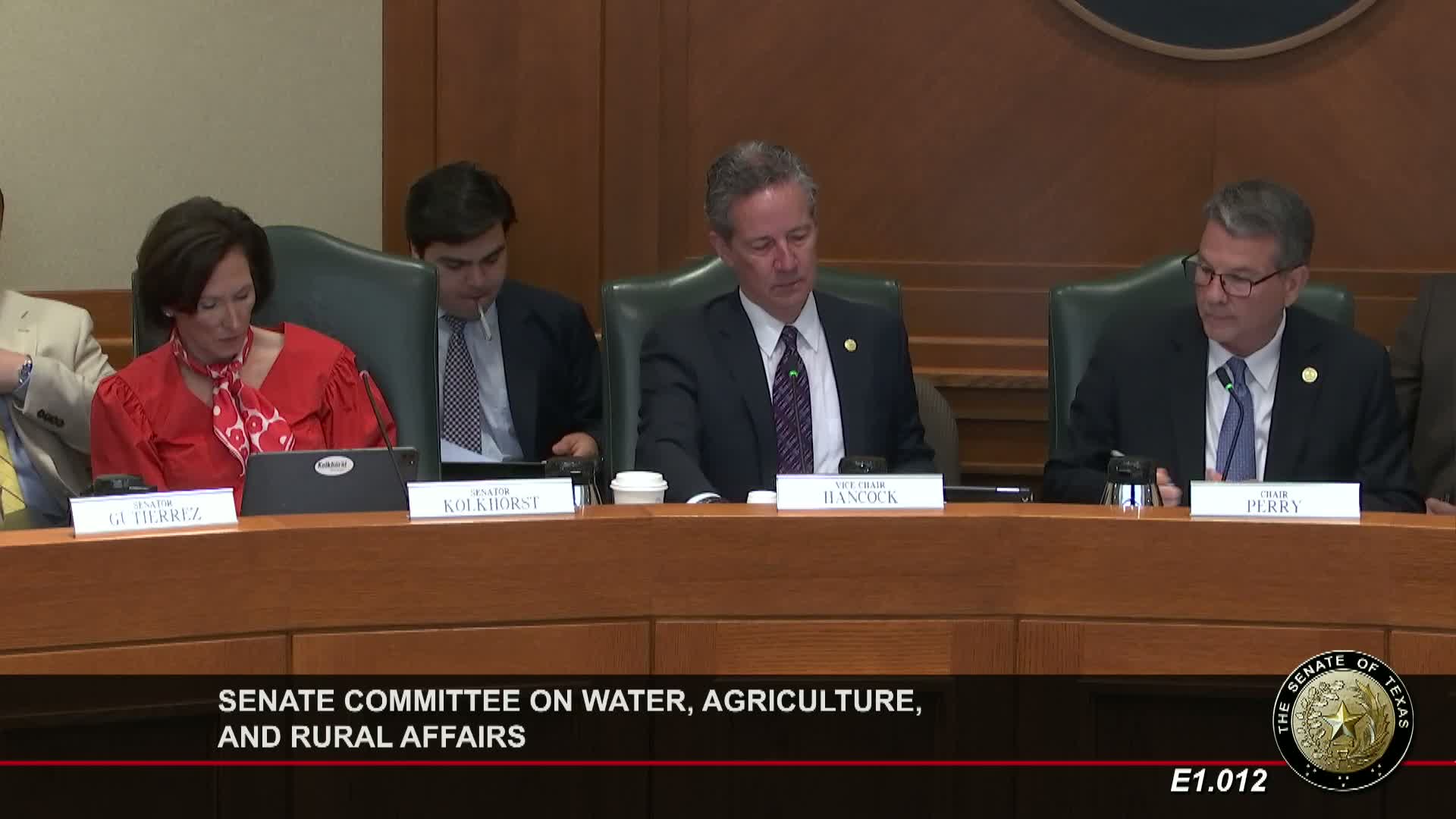
Senate committee advances overhaul of Texas Agricultural Finance Authority with reduced grants, debate over funding
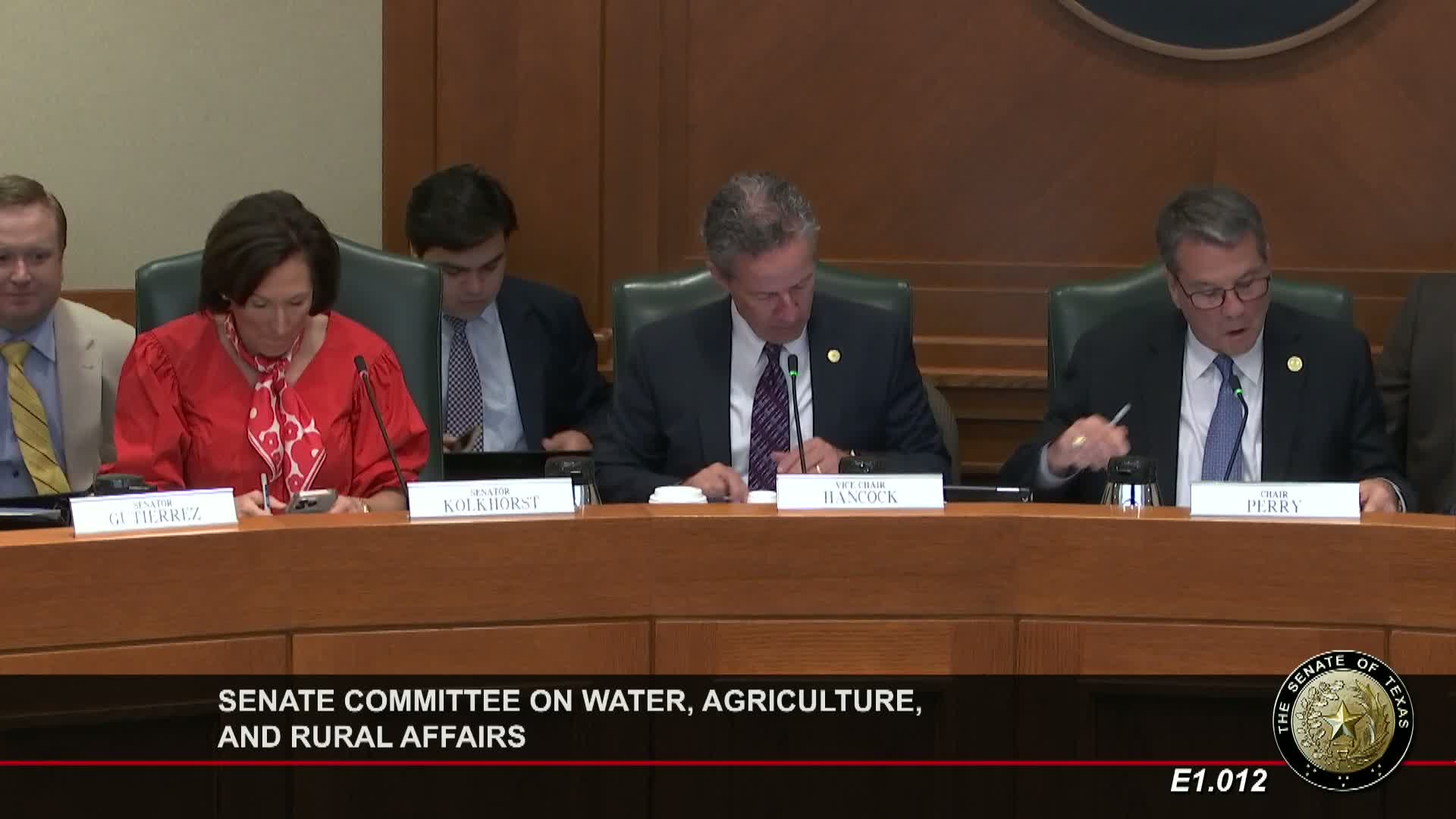
Committee hears urban preserve managers, wildlife biologist on bill allowing targeted lethal control of deer in specific situations
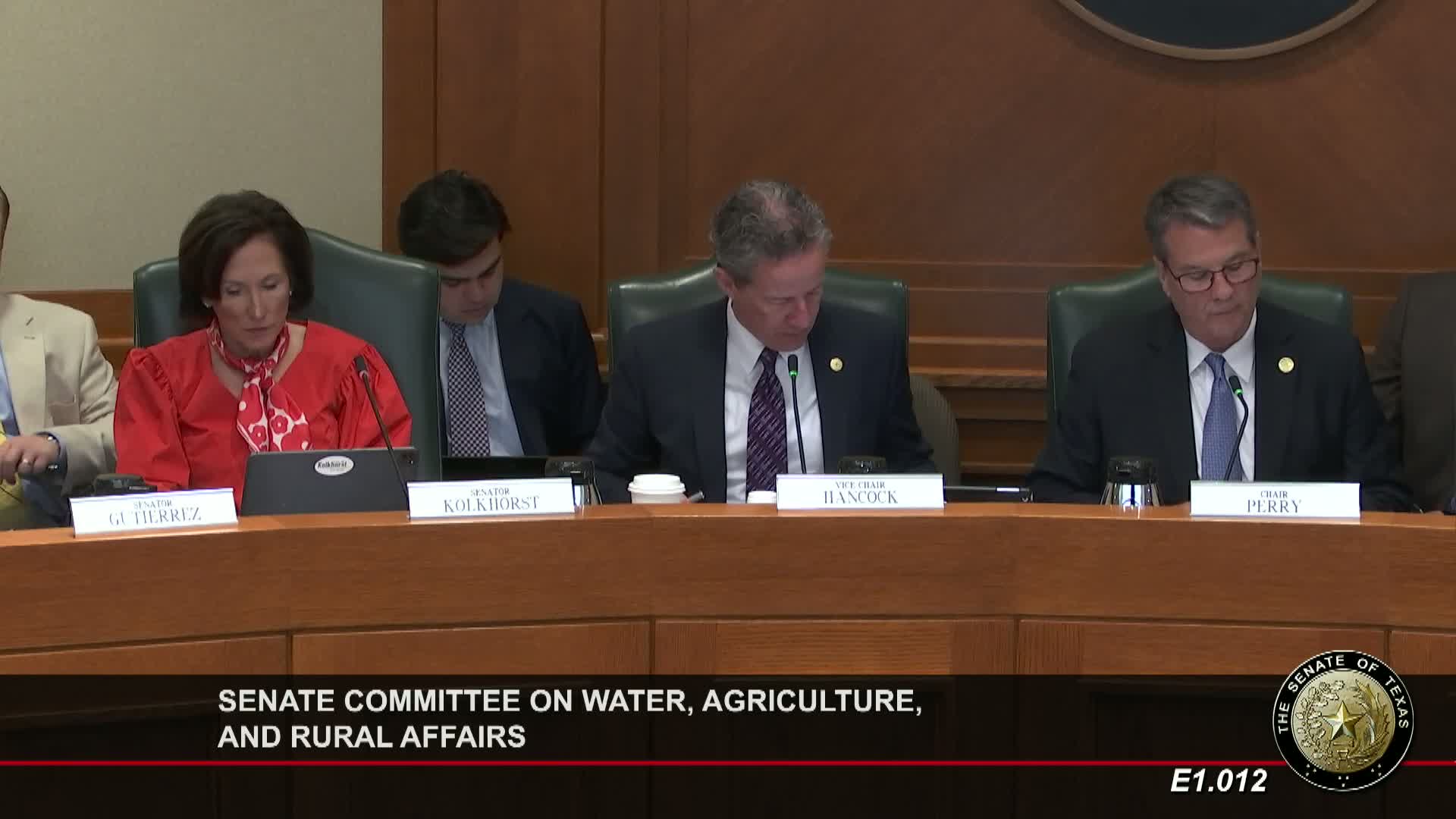
Farm Bureau tells committee municipal right‑of‑way maintenance rules burden farmers; bill would limit cities’ requirements
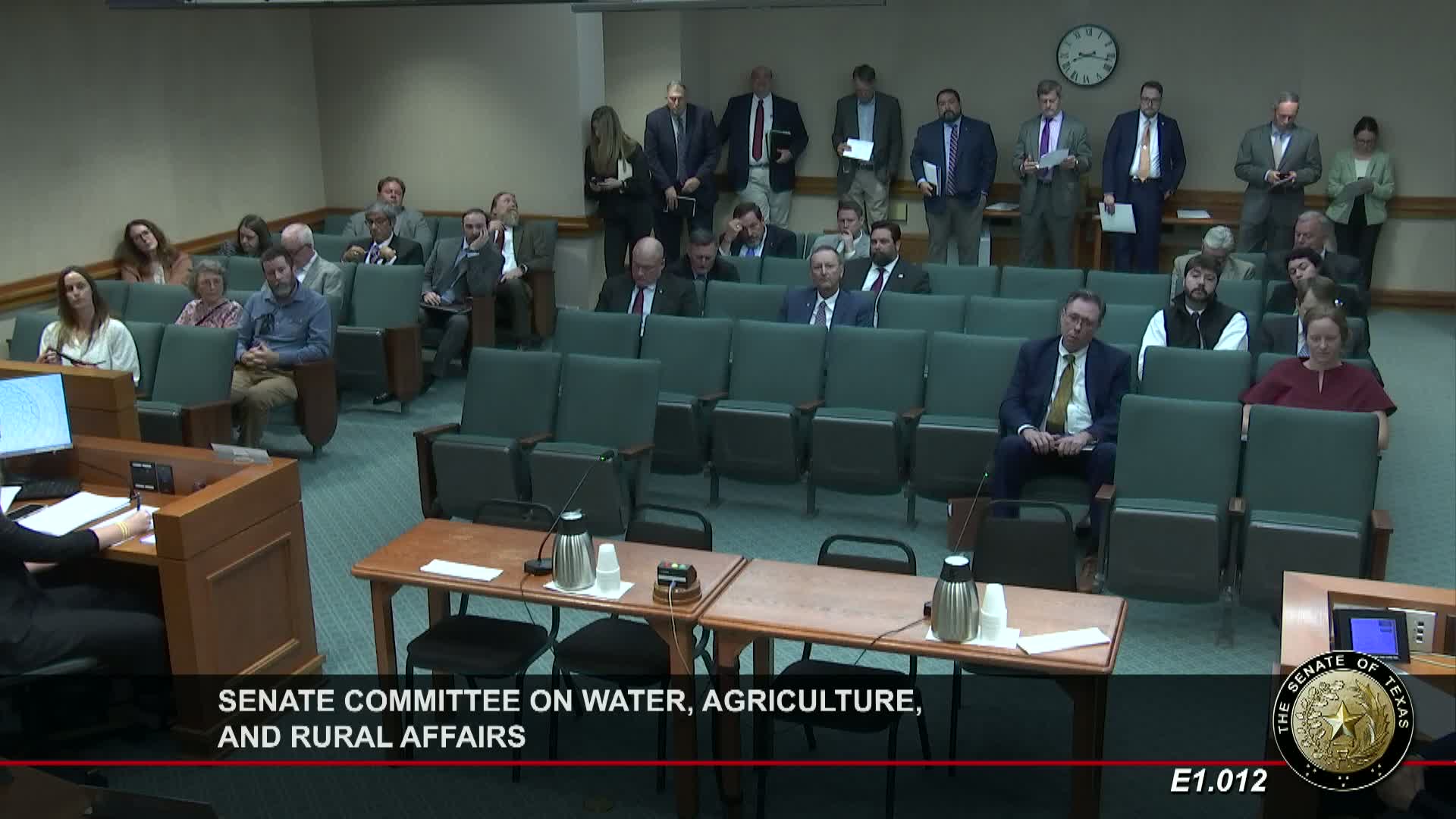
Committee backs change to classify honey as raw agricultural commodity; beekeepers say it will help small producers
